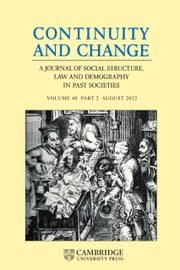Article contents
Mistress or wife? Fukui Sakuzaemon vs. Iwa, 1819–1833
Published online by Cambridge University Press: 12 November 2003
Abstract
This article is a case study addressing the issues of concubines, legitimacy and inheritance in early modern Japan. Although there was some discussion about the legal status of concubines/mistresses in the late nineteenth century in Meiji Japan, the topic has attracted surprisingly little recent research. The Meiji debate was concerned with how to treat concubines under a system that both outlawed bigamy and recognized common law marriages. The later academic debate refers back to the earlier interpretations of the legal and social status of concubines, with one side claiming they were nearly equal to wives and the other claiming they were little more than servants. In this study I review the above debates and then address the issue with a study of an inheritance case that began in 1819 when Fukui Sakuzaemon adopted an heir from outside the family. Sakuzaemon's concubine Iwa played an important role in the inheritance agreement and in further developments in the suit, including later efforts to disinherit the new head and gain support for her daughters by Sakuzaemon. I use the documents from this complicated case to analyse the social and legal statuses of Iwa and the relationship of her daughters to the Fukui family and its assets.
- Type
- Research Article
- Information
- Copyright
- © 2003 Cambridge University Press
- 6
- Cited by


